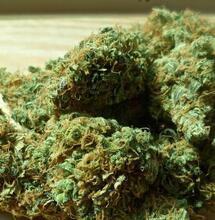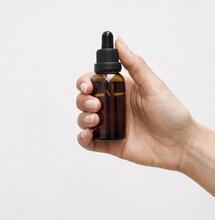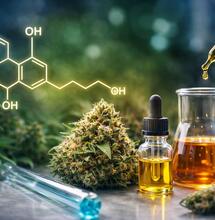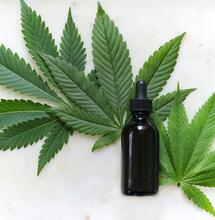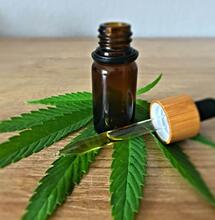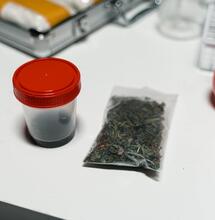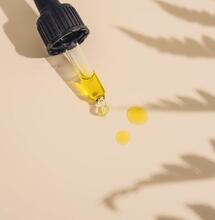CBD Is Effective for Anxiety, Depression, and Poor Sleep
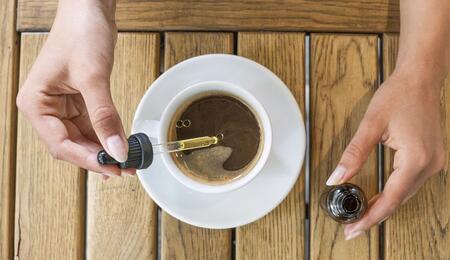
Anxiety, depression and poor sleep are some of the most common reasons people try out CBD. Research has been ongoing on the full effects of CBD in treating these conditions. The latest scientific probing on the topic shows that an oral CBD solution effectively treats mild to moderate anxiety, as well as accompanying symptoms of depression and disturbed sleep, without causing any serious adverse effects. Read more below and learn how to use CBD effectively for anxiety, depression, and poor sleep.
A new industry-backed research outlines that using 300-600 mg of nanodispersible oral CBD for three months is an effective therapeutic plan in treating moderate forms of anxiety with symptoms of depression and disturbed sleep.
The findings are consistent with other research demonstrating that CBD may reduce anxiety when given for a longer period of time, such as at least for a month and up to three months, the study authors noted.
The research results were recently published in the Asian Journal of Psychiatry. The authors team include personnel working with Asha Hospital and Leiutis Pharmaceuticals LLP (India), and Biosphere Pharma Inc. (New Jersey).
CBD Can Help for Mood and Depression
The latest research indicates that oral Cannabidiol solution can help for mild to moderate anxiety, without causing any negative side effects at the end of the treatment. CBD was also found effective for other concomitant symptoms of anxiety, such as depression and poor sleep.
For the purposes of the study, the participants were divided into two groups, with the first group receiving 300 milligrams of CBD per day in the beginning and increasing that dose to 600 mg per day later on. At the end of the trial the dose was decreased at 150 mg per day. The second group was a control group and were given placebo.
The research team used several tests to measure the level of anxiety in each participant. They did GAD-7, a standardized anxiety test that tracks anxiety scores from mild to severe. Observation and tests showed that those who took CBD had falling scores on the anxiety markers. On the other hand, there were no significant score changes in those participants from the control group.
Similar results were also delivered through the Hamilton Anxiety Rating Scale, another common test that evaluates anxiety.
The study authors wrote that administering CBD “showed therapeutic efficacy, excellent safety, and tolerability in treating not only mild to moderate anxiety disorders (primary end point of the study), but also associated depression and disturbances in sleep quality (secondary end point of the study).”
There were “no incidences of withdrawal anxiety upon dose tapering at the end of the treatment,” the researchers added.
The report concludes that CBD works as an effective anxiolytic, and that oral CBD formulas have the potential to treat various psychiatric disorders alone or in a combination with other medicines. Learn more here about medicinal cannabis in combo with other drugs.
How CBD Delivers Its Therapeutic Effect?
CBD is extracted from cannabis or hemp and contains no THC, which means it is non-psychoactive. Here is the full list of what it does in the human body:
- It plays a role in enhancing the effects of serotonin, a neurotransmitter involved in managing mood and anxiety.
- It reduces stress-level hormones, such as cortisol, which in turn reduces adverse effects from anxiety and stress.
- It eases inflammation, which is a common underlying problem for various health issues, anxiety included.
- It has neuroprotective qualities and protects the brain from the harm that stress and anxiety can cause.

CBD vs. Antidepressants for Anxiety
Antidepressants are conventional therapy for mood and anxiety disorders. While they can help great deal for experiencing anxiety relief, antidepressants can also lead to other health problems. That is the main reason why medical research is so invested in learning about the full potentials of CBD in treating mood disorders. CBD can deliver results without causing adverse side effects as seen with antidepressants.
The list of side effects from antidepressants is long. Here are just some of them: dizziness, nausea, constipation, weight gain, headaches, lack of sexual desire, tremor, blurred vision, sleeplessness, restlessness, insomnia, and more.
Unlike anti-depressants, which can lead to other health issues (trouble sleeping is a perfect example), CBD seems to be better tolerated among patients. It can still cause side effects like dry mouth, diarrhea, change in appetite, drowsiness, or fatigue, but those are more manageable than the adverse reactions from antidepressants.
From what we see from research so far is that CBD not only treats the targeted health problem, in this case anxiety, but it also treats accompanying symptoms like poor sleep. When you take antidepressants, you might need to take another pill to actually treat troubled sleep or insomnia.
CBD Sleep Gummies Side Effects
One of the favorite CBD products that people try to medicate with and in particular to experience better sleep are CBD gummies.
However, frequent use of CBD edibles may put a strain on the liver, and it may interfere with other drugs if taking any. Other side effects from CBD gummies may include feeling drowsy when starting them, and light irritability and agitation when stopping the gummies. Gastrointestinal problems can also occur, for example when mixing CBD and alcohol.
While CBD sleep gummies are an effective delivery method in treating the core problem, CBD in pure oral form may still be the option that delivers the best result.
Broad or Full-Spectrum CBD for Sleep?
Those who want to try CBD to improve sleep and enhance their mental well-being, often wonder whether it’s better to go with a broad or full-spectrum product.
It’s widely considered that full-spectrum CBD works better for addressing sleep problems. But that also means that the product contains some THC as well, which is why it’s called full-spectrum – it comes in with a powerful combination of cannabinoids.
Nevertheless, broad-spectrum and isolated CBD formulas can also work effectively for those looking for a new calm and sleep medicine.
While broad-spectrum CBD facilitates anxiety relief without the touch from THC, full-spectrum CBD infused with THC delivers the cannabis entourage effect with potential extra benefits in tackling anxiety, mood and sleep problems. In the end, it comes down to personal preferences and whether you are tolerant to THC or not.
CBD Dosage: How Much Should You Take?
It might be a challenge to find the right CBD dose that works best for the health problem you are trying to address. The FDA has only approved the use of CBD for different types of epilepsy thus far, and your family doctor may not be so familiar with optimal CBD doses for anxiety, depression, or poor sleep.
Luckily, there’s other research that can offer some guidance. According to a more significant therapeutic review on CBD from 2020, clinical dosages can vary considerably depending on how CBD is taken, as well as the medical condition being treated. Below are the CBD doses for anxiety, poor sleep, pain and inflammation.
Anxiety: 150-900 mg per day (oral solution)
Poor sleep: 300 mg (oral solution, dissolved in other oil)
Pain/inflammation: 250-500 mg (transdermal gel)
The ‘optimal’ doses for CBD may differ based on various factors, such as tolerance, body weight, how CBD is given (oral, gel), and whether you take in other medicines or substances. For example, alcohol can reinforce the sedative effect of CBD.
To find out whether a CBD product is safe and to determine the best treatment plan for the condition you want to treat, it’s a general recommendation to consult and speak with a doctor. Preferably, look for a health expert who has experience working with cannabis medicines.
Also read on Soft Secrets:
- Is CBD Effective for Menstrual-Related Symptoms?




